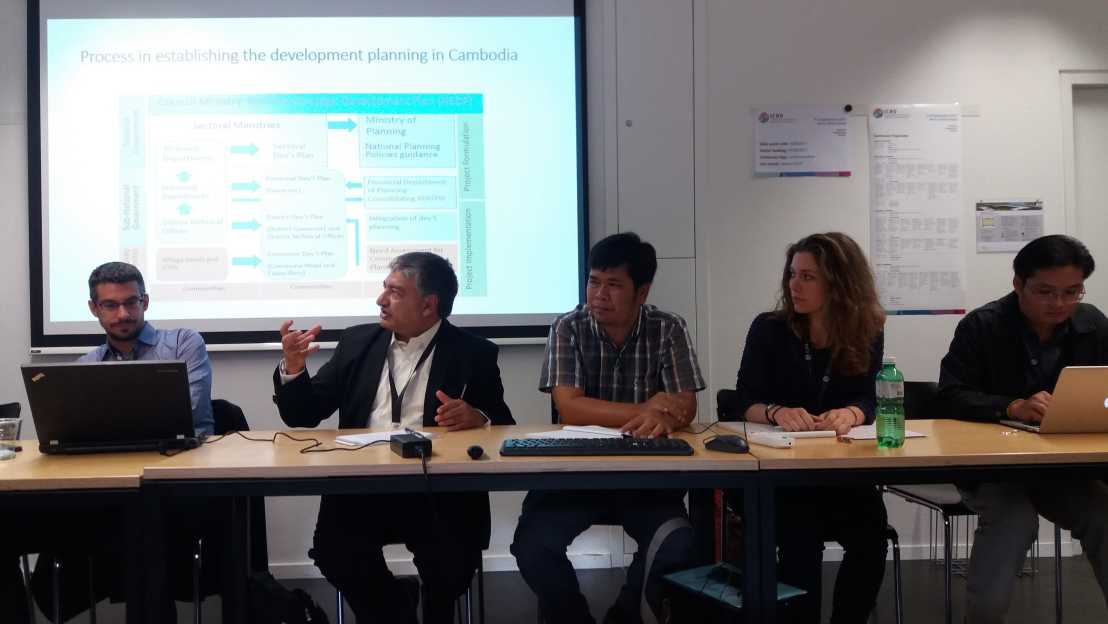Closing the gap between science and policy: participation by project members at the International Conference for Research on Development, Switzerland, 5th – 8th September 2017
Convened in Bern, Switzerland, this conference brought together academics, policy makers and civil society representatives from all over the globe to discuss and share knowledge on development, policy and linking the two. Attended by 350 participants, the conference provided for stimulating discussions and valuable networking in an open and engaged environment.

As part of their attendance at the conference, several project members participated in a panel on ‘Partnerships for Producing and Effectively Using Knowledge that Advances Transformations to Sustainable Development,’ co-chaired by Eliud Abucheli Birachi, International Center for Tropical Agriculture, and Manuel Vogt, ETH Zurich. On the one hand, the panel addressed the establishment of successful science-policy partnerships that allow for the effective dissemination and use of research findings in support of the development process. Sharing experiences from Nepal, Rwanda, Laos and Cambodia, the panelists emphasized the importance of constructive dialogue as a means of facilitating the co-production and co-ownership of the entire research process by multiple stakeholders, including policy- and decision-makers, the wider public as well as the local communities who are the main intended beneficiaries of development interventions. Concentrating on Zambia, India and Guatemala, other members of the panel shared their insights and findings specifically with regard to ethnic mobilization, emphasizing, for example, the scope and importance of freedom of information as a means of overcoming rumours and false information on issues such as mining, around which grievance-based ethnic mobilization is increasingly taking place. Also discussed were the different strategies of ethnic mobilization in response to inequality and underdevelopment, including the use of ethnic identity by political organisations in unifying groups for collective political action.